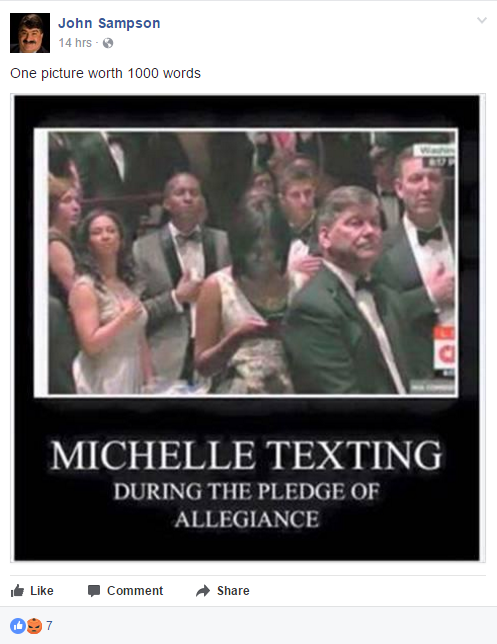In Trump era, what to do about Muslim haters on Colorado talk radio?
Wednesday, November 30th, 2016Bigotry toward Muslims is part of the hot air on some Colorado talk-radio shows, so much so that you get inured to it and kind of accept it.
But now that Trump is about to be president, the air seems a lot hotter, and it’s impossible to ignore right-wing bigotry as fringe craziness.
How can you not worry about the safety of Muslims in our community when you listen to, for example, KNUS radio’s Peter Boyles, who’s a notorious birther and bigot?
At this moment, with Trump on the White House doorstep, can we/ should we/ pretend not to hear Boyles’ hatred? And what to do about it?
In an on-air discussion yesterday morning with a fellow bigot named Tim Furnish, Boyles denounced Islam and said Muslims are incapable of respecting the U.S. Consitution and the fundamental values of the United States, due to their religious beliefs, essentially saying there is no place for Muslims in our country.
FURNISH: There’s a real incompatibility between Islam and Western-style government democracy. There just is.
BOYLES: It doesn’t work! They don’t work!
FURNISH: They don’t work together. This incompatibility is not extremist. It is intrinsic to Islam.
BOYLES: Agreed.
FURNISH: … Islam has never come to terms with, as they say, modernity. Islam has never come to terms with the idea of a secular state that has not imposed a religion –even the majority religion–on people. Because at the heart of Islam–going back to Mohammed himself, the Quran, the Hadith, so-called sayings of Mohammed, and 1400 years of Islamic practice– is that where there is a majority of Muslims, Islamic Law must be instituted. And where there is a minority of Muslims, they should fight – at first, maybe peacefully and then later through jihad – for the imposition of Islamic Law. This tension will not go away.
BOYLES: Yeah, it’s, “First – first—“.
FURNISH: And you cannot make Western democracy work with Islamic ideals. They are incompatible.
BOYLES: “First we crawl, then we walk, then we run.”
FURNISH: Right.
BOYLES: That’s why — I mean, it’s happening before your very eyes. Hillary Clinton got all twisted up about all of the stuff, and went after Trump. Trump is telling the truth.
If you’re saying Islam “doesn’t work” with “Western-style government democracy,” and you’re agreeing that even a minority of Muslims in a country will eventually wage jihad, then you’re basically saying Muslims have no place in the United States. Worse, you are saying all Muslims are a constant threat. How else to interpret this?
Elsewhere in this interview, Boyles said Muslims aren’t the ones who are the victims of a McCarthy-like attack. It’s Peter Boyles who’s actually under attack, according to Boyles!
“Progressives,” Boyles said on air, “They hunt for victims.”
In this case, in Boyles view, progressives are hunting for people who promote “Islamophobia,” decried by Boyles as a “created term” designed by progressives to stifle criticism of Muslims.
“This is a new McCarthy-ism,” Boyles said.
But today’s attacks on Muslim haters are worse than what happened in the McCarthy era, Boyles went on to say, because the press is on the side of the Muslims, instead of supporting people like Boyles—whereas before Edward R. Murrow and Fred Friendly were there to “stand up to the McCarthyists,” said Boyles.
“We don’t have Big Journalism standing up as Edward R Murrow did, as Fred Friendly did,” said Boyles, who was once a respected, even beloved, media figure in Denver, if you can believe it. “We have a bunch of fill-in-the-blanks who are just desperate to lay down in front of this train. And you know what? As they say, they will come for you. They may eat you last, but they will still eat you.”
Boyles is mad at journalists for defending the basic civil rights of Muslims and exposing bigots like him.
Again, Boyles’ ugliness would be bad enough if our country didn’t have a Muslim-hating bigot as president-elect. But since we do, we have to fight back now or at least be ready to help our Muslim neighbors if people like Boyles begin organizing attacks against them—with or without the backing of Trump and our own government. We’ve reached that point.
ProgressNow Colorado has set up a “rapid response” network to, among other things, mobilize people in support of Muslims and others if Boyles, Trump, or anyone goes after them. We have to be ready. Sign up here.
LISTEN TO BOYLES’ NOV. 29 INTERVIEW FURNISH BELOW.










